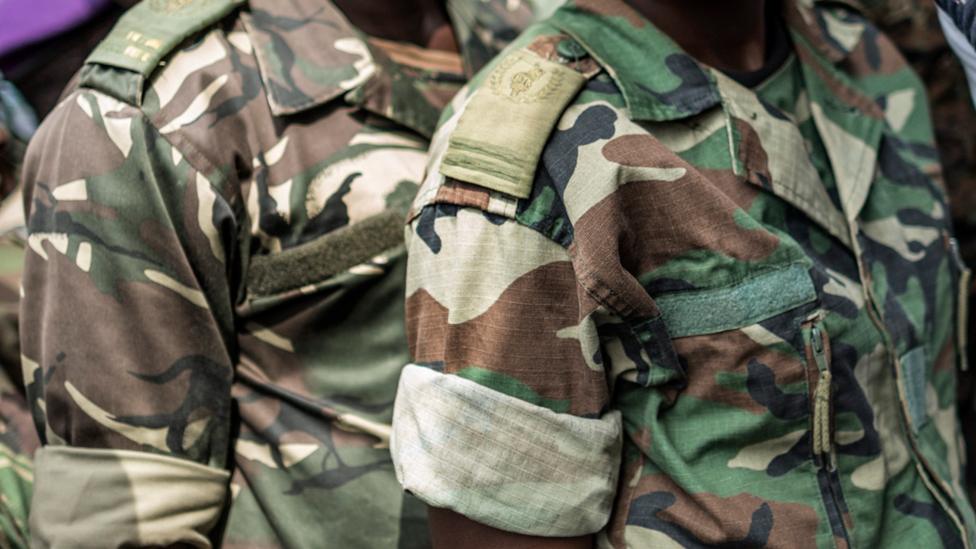Congo-Brazzaville stampede: Dozens killed during army recruitment drive
- Published

The army wants to recruit about 1,500 people between the ages of 18 and 25
At least 37 people have died in a stampede during an army recruitment drive at a stadium in Congo-Brazzaville, the government has said.
People tried to force their way through the stadium's gates in the capital, Brazzaville, causing the stampede, residents have been quoted as saying.
Last week, the army announced plans to recruit about 1,500 people between the ages of 18 and 25.
Many were injured in Monday night's crush, a government statement said.
It did not give a number, but said that a "crisis unit" has been set up under the authority of Prime Minister Anatole Collinet Makosso, the AFP news agency reports.
According to the Associated Press (AP) agency, as many as 700 people a day have been registering over the last week at recruitment centres.
Youth unemployment is at around 42% in Congo-Brazzaville, with many young people seeing the army one of the few places where they can secure a job.
The army said it had suspended recruitment in the capital following the stampede at Michel d'Ornano stadium at around 22:00 GMT.
Public prosecutor Oko Ngakala said that an investigation would be launched into the cause of the crush.
Thousands of young people had reportedly gathered outside the stadium on Monday.
Brandon Tsetou, a graduate who survived the crush, said he had queued since early in the day.
"According to the organisers, it was to be the last day. That's why many of us decided to wait until late into the night, hoping to register," he told AP.
"Some were so impatient that they had to force their way in, causing a stampede that left a number of people dead or injured, which we deplore."
Morgue official Adelard Yvon Bonda told AFP that 32 bodies had so far been identified by family members.
"We must first of all pay our respects to the memory of those who have just left us," he is quoted as saying.
"This is a situation that arose. It was not provoked, but it happened because young people need jobs."